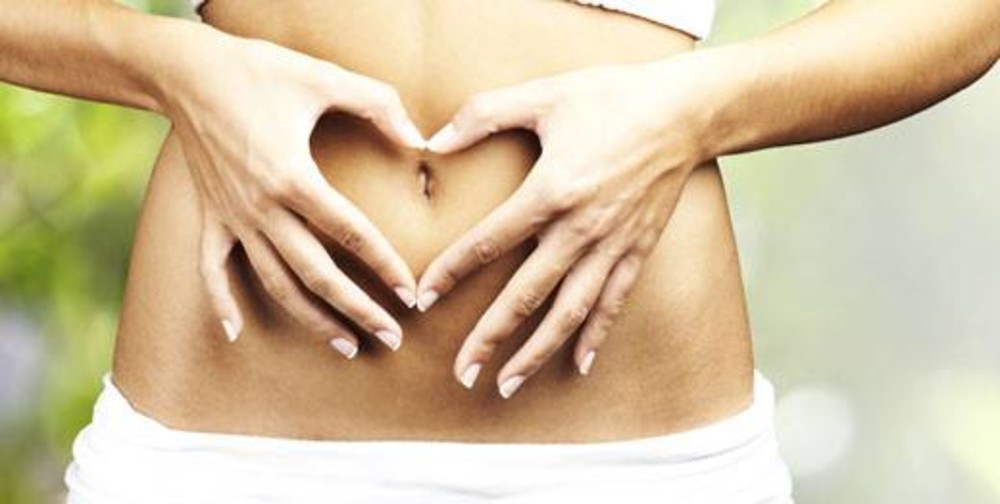Most of my clients don’t realize it, but what they eat and how they live are changing the makeup of their gut bacteria.
Exciting new studies are coming out every day exploring the connection between gut bacteria and practically every other aspect of human health. The conclusion is clear: If you can change your gut, you can change your life.
But how do you know when something’s wrong with your gut bacteria in the first place? And more importantly, what can you do about it? Keep reading to find out.
- Microbes Influence Your Weight
It’s important to understand that there are hundreds of species of gut microbes, creating a complex and diverse ecosystem. We know, there are both good and bad bacteria battling it out, influencing your weight. It’s been found that leaner individuals tend to exhibit a larger diversity of bacteria while heavier individuals display a less diverse community of microbes.
Some microbes are more likely to extract calories from sugars and convert them to fat, while others, such as Bacteroidetes specialize in breaking down plant starches and fibers for energy. To put it simply, the more good or healthy bacteria you have within your gut, the more likely it is that you’ll maintain a healthy weight.
- Probiotics, the Gut-Axis, and Mental Well-Being
Researchers have long been studying the connection between our gut microbes and brain chemistry. Based on new findings, this theory is referred to as the gut-brain axis. When you lack healthy gut microbes, there’s a greater chance of psychological dysfunction. Trials conducted with probiotics have shown that introducing species such as Lactobacillus rhamnosus, reduce symptoms of depression and anxiety.
- Bring on the Bacteria, the More the Merrier
There’s often a negative association with the word bacteria. Although bacteria within our external environment can cause harm, the bacteria inside our bodies are what protect us. Bacteria that is naturally found within your gut has the ability to protect you from other organisms that enter your body. As mentioned, the more diverse and balanced your bacteria are, the better.
- Breast Milk Passes Bacteria from Mother to Child
For years, we have known the benefits in which a mother’s milk provides. Breast milk is important when building a baby’s immune system, however, new research is showing that beneficial bacteria is transferred from mother to baby during feeding.
It’s believed that more than 700 species of bacteria are transferred, helping newborn babies develop healthy microbe flora. Referring back to weight, it has also been found that mother’s who are heavier tend to pass on fewer bacteria in terms of diversity.
- Lack of Diversity Increases Allergies
When you lack a rich diversity of bacteria in your gut, you threaten your immune system. It’s been found that the presence of Clostridia, a common gut bacteria, protects our bodies from food allergies. When researchers studied over 400 infants, they found that diversity of microbes was linked to a reduced risk of allergies.
- Gut Bacteria Could Harm Your Liver
It’s important to understand that bacteria isn’t always beneficial. Our livers work hard, sourcing 70 percent of their blood flow from our intestines. It makes sense that blood isn’t the only thing they’d share. Researchers have found that many patients with nonalcoholic fatty liver disease, also displayed an overgrowth of gut bacteria.
Ready to improve your gut, but not sure where to start?
Have a nutritional analysis talk and test with Caroline.
Avoid antibiotics: Based on overuse of antibiotics (especially in children), as well as the exposure to antibiotics in our food, these factors may be shifting the balance of our gut microbes. Although necessary in some cases, don’t be afraid to ask questions before taking your next dose.
Let in some fresh air: For the majority of human history, we spend our days outdoors. Now, humans tend to spend up to 90 percent of their time indoors. This has changed our exposure to a diverse world of microbes. Don’t be afraid to open the windows! Allow a more natural airflow throughout your home.
Eat more plants: You don’t necessarily need to give up meat, but you should increase the diversity of whole food plants consumed. Increase your intake of fiber and eat more fermented foods, as they’re rich in probiotics and prebiotics.
Make your first free-of-charge, 15-minute nutrition consultation via Skype/phone here.





